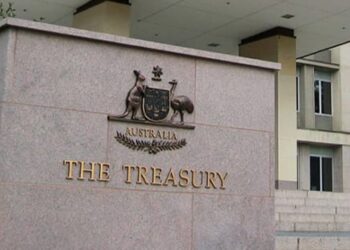Ongoing advice fee consent forms were a hot topic during consultation on the first tranche of the Delivering Better Financial Outcomes (DBFO) reforms, with advice associations largely pushing for the removal of consent forms entirely.
While this didn’t eventuate, the next best option did – sort of.
Under the Treasury Laws Amendment (Delivering Better Financial Outcomes and Other Measures) Act 2024, which was passed in July, the mandatory content for ongoing fee consents was amended and replaced the Australian Securities and Investments Commission’s ability to prescribe this content with ministerial ability.
Broadly, as Treasury explained in in a letter to stakeholders in October, this means that the minister has the power to approve a form for “giving consent to enter into or renew an ongoing fee arrangement or authorise the deduction of ongoing fees”.
Where this measure falls short is that a mandated form is yet to be delivered. Indeed, Treasury conceded that it has no chance of being in place, nor is it the department’s “intention to finalise the design of a form” ahead of the new arrangements commencing on 10 January 2025.
“Transitional arrangements and appropriate timing for implementation will form part of the design considerations,” Treasury said.
The department also stressed that, in order for the government to approve a form, there needs to be a “broad consensus from stakeholders” and it must be “clear that efficiency benefits will be achieved”.
This is something with which the Association of Superannuation Funds of Australia (ASFA) has taken particular issue in a submission to the consultation on the forms.
“From the outset, ASFA wishes to state as clearly as we can that our members do not believe the two necessary preconditions outlined by Treasury above have been met,” it said.
“That is – we do not believe there is broad consensus for the approval of such a form, neither do we believe it is clear efficiency benefits will be achieved.”
According to the submission, ASFA members have raised a number of issues that they believe disqualifies a standardised form from meeting Treasury’s “stated necessary preconditions”.
“For any form to be effective in this space, it would have to have the unanimous support not only of the superannuation sector, but of the professional financial advice sector. Such consensus does not exist presently,” ASFA said.
The submission also argued that, given the “multiplicity of obligations” already placed upon financial advisers, additional mandatory requirements would actually impede efficiency. In a similar vein, ASFA said supplementing the “already exhaustive and clear” requirements in the legislation would “just be a repetition of existing requirements which are already in legislation” at best.
“The multitude of variables that need to be addressed may make it challenging for a single prescribed form mandated by the government to cover these variables,” it said.
“For example, product providers will have a different subset of possible fees that trustees will allow, a variety of fee caps that will apply and potentially different opinions around the ability [and consent required] to transfer fees to a new adviser/AFSL if the existing adviser moves.”
In addition to privacy concerns where fees are to be deducted from more than one product provider, the submission also said there are “considerations” in relation to how a standardised form might address “more complex situations where advice is being provided to a couple rather than an individual”.
“In the absence of Treasury’s own stated necessary preconditions for issuing a form being met, ASFA does not support the issuing of a standardised form at this time,” it said.




For f$_&s sale – it is a 1 page form, should have taken 20 minutes to adapt from one of the hundreds already in existence – only the government could turn this into a multi-month project.
Just hand it to any adviser in the private sector and we will get it done in 20 min so everyone can just get on with it *eyeroll*
So adviser get no relief, not even for a goddamned form. ASFA are disgraceful but where are the Advice professional bodies calling out his BS. Utter embarrassment. Super in Australia is dynamic, wholesale system and administration are needed for constant changes. Unless of course, it can assist the advice profession help Australians objectively, then it’s incapable. Disgusting
Once again, sensible reforms are thwarted by the big product providers. They want to keep red-tape straight jacket firmly on financial planners. They do not care one bit for consumers, who have to jump through these ridiculous hoops to keep their adviser.
They are busy salivating over the opportunity to employ their own sales-force masquerading as financial advisers, who will only promote their products and never have to get their fees approved. They will simply skim money out of all members accounts to cover the cost. Happy days for them.
Seems clear to me that professional financial advisers can simply jog on.
My view is the consensus perhaps is that the vested interests quite like things exactly how they are.
With their boards of Super Trustees acting as the gatekeeper of how and when an adviser gets paid, staring down at advisers like some tawdry criminal from the pulpit of alleged consumer protection.
Can someone remind me how consumer protection rules apply to sponsorships and partnership agreements?
Canberra is a joke.
Jones out, ALP out in 2025
“Transitional arrangements and appropriate timing for implementation will form part of the design considerations,”
So, in Australia, how many Bureaucrats does it take to make ONE FORM?
Are these Bureaucrats
1) Completely inefficient?
2) Deliberately slow walking the process?
3) Both 1 and 2?
Can anyone give me a good reason to vote for any of the Major Parties this coming Federal election?
My guess is ISA declared this position all along when consultations were occuring for DBFO. Jones knew this as well, and that is why he stuck the clause in there about institutions not being bound to using a universal form. Jones made it look like he was working with Financial Advisers but in reality he has done nothing for them, in this respect. The same occurred with 99FA – the “concession” he made was to keep the rules the same, so superfund can still check your SoA’s and be the gatekeeper of advice fees.
They are checking them now.
Trust me – You’re friendly platform audit letter is in the mail. And they ask for a lot more than just the SoA.
The govt does not need consensus they can just mandate a form which they should already have been produced.
It should be opt out other than for a new or increased fee.
The fee consent laws have always been an unnecessary abomination.
Typical morons in Canberra bureaucracy have stuffed Advisers and Clients yet again.
ZERO RED TAPE REDUCTION COSTS !!!! ZERO !!!!
The only process should the Fee Disclosure Statement (FDS), that covers multi clients like mum & dad and multi products like super accumulation and pension.
These FDS should only be held by Advisers and NOT FORCE FEED INTO INSTITUTIONS / Super Funds.
This new Advice Fee Renewal will be just as stupid and time wasting as the current process.
And more so for FDS only clients that can currently lodge the single FDS.
And at the same time, the NCA will be feed a salary taken from the product by the product? Staggering double standards?
Any financial plan worth doing is a design over many years, this annual consent like it’s a tax return is an ill-informed path. It devalues strategy, and clients just give up.
Unless ANNUAL fee renewal forms (that do NOT exist in any other nation on earth), millions of time poor busy families will never be able to access cost-affordable RETAIL advice. This is a shambles of epic proportions.
We all know who is the party causing the issue here, it’s ISA.